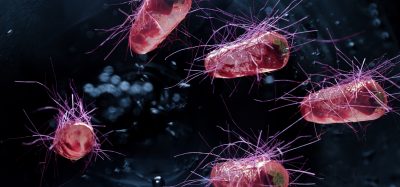Capgemini’s AI innovation set to boost bioeconomy
Posted: 17 February 2025 | Drug Target Review | No comments yet
Capgemini’s new AI-powered methodology reduces data requirements by 99 percent and accelerates bioengineering breakthroughs, including improved plastic degradation and faster drug discovery.


Screening a vast number of drug candidates is crucial for finding effective treatments. AI has shown it is highly effective at this, helping researchers quickly explore many molecules and identify those with the best potential to target specific diseases or proteins.
Capgemini is transforming protein engineering with a new generative AI-powered methodology. This innovative, patent-pending approach utilises a purpose-built protein large language model (pLLM) to predict optimal protein variants, driving advancements in the bioeconomy.
This approach is set to accelerate scientific progress across healthcare, agriculture, and environmental science. A major breakthrough is the reduction of over 99 percent in the data points required for protein sequence design. By harnessing generative AI, Capgemini’s methodology streamlines research and development, cutting costs and saving valuable time. This efficiency lowers biosolution development expenses, unlocking new opportunities for previously unfeasible business ventures.
Developed at Cambridge Consultants’ specialised generative AI-driven biotechnology lab (part of the Capgemini Group), this methodology has already demonstrated its real-world impact. Specifically, it has enhanced the cutinase enzyme, boosting its ability to break down PET plastic by 60 percent, an advancement that supports sustainability efforts and reduces waste management costs.
Additionally, generative AI predictions have dramatically reduced the number of experiments needed to identify an optimised variant of the Green Fluorescent Protein (GFP) benchmark. GFP is a naturally occurring protein found in the jellyfish Aequorea victoria, which fluoresces green when exposed to UV light. It is widely used in molecular and cellular biology as a marker for tracking gene expression and protein localisation. The result is a brightness level seven times higher than the naturally occurring jellyfish protein, with significant implications for faster drug discovery and improved diagnostic tools
Roshan Gya, CEO of Capgemini Invent, emphasised that this proprietary generative AI-driven approach enables Capgemini to help clients accelerate progress in the bio field and address some of humanity’s most pressing challenges. The new methodology is described as faster, more cost-effective, and capable of opening new opportunities for clients to create innovative bio-based solutions, thereby fostering growth in the bioeconomy. Capgemini aims to be a driving force in this fast-evolving field, leveraging its expertise and adaptability to push technological boundaries.
Related topics
Artificial Intelligence, Bioengineering, Drug Discovery, Drug Discovery Processes, Enzymes, Proteomics, Sequencing
Related organisations
Capgemini
Related people
Roshan Gya








